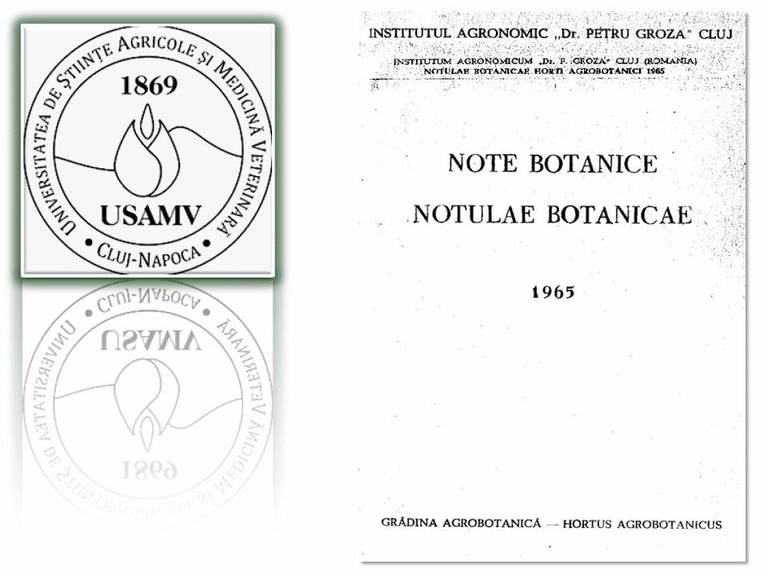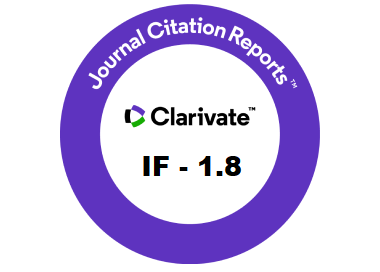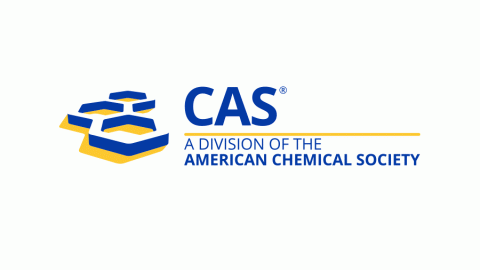The effects of salinity stress on Amorpha fruticosa Linn. seed germination, physiological and biochemical mechanisms
DOI:
https://doi.org/10.15835/nbha52113552Keywords:
germination, nutrient homeostasis, soluble sugars, salt stressAbstract
Salinity stress is serious threat to crop productivity and globe food security. This study investigated the impact of NaCl (neutral salt) and basic salt (basic salt) on seed germination physiological and biochemical traits of Amorpha fruticosa. Salt stress had no significant effect on seed germination rate, however, alkali stress significantly decreased (p≤0.05) rate of germination. Both stresses also negatively affected the growth of radicle and germination (P <0.05), and the effect of alkali stress was greater than that of salt stress. The concentration of K+, Mg2+ and Na+/K+ in radicle and germ remained relatively stable, which was conducive to adapting to salt and alkali stress, but the concentration of K+, Mg2+, NO3-, H2PO4- and SO42- changed differently under salt and alkali stress. Tartaric acid was the main component of the 8 organic acids, and the accumulation changes of each component were different under salt stress and base stress. Tartaric acid was accumulated in large quantities under salt stress, and the accumulation of other acids (citric, malic, acetic, oxalic, formic and lactic acids) were markedly enhanced under alkali stress (P <0.05). Among the 16 free amino acids, arginine, alanine and threonine are the response solutes under salt stress, and glutamic acid and threonine are the response solutes under base stress. In In conclusion, proper concentration of salts can promote seed germination and radicle growth. Therefore, plant performance can be improved by soaking seeds in appropriate concentration of salts.
References
Bagayoko M, Kamissoko B, Coulibaly MM (2014). Salt tolerance of 15 rice (Oryza sativa L.) varieties. In: The Office du Niger zone of Mali. Journal of Agricultural Science and Technology B 4:224-236.
Barra Caracciolo A, Terenzi V (2021). Rhizosphere microbial communities and heavy metals. Microorganisms 9:1462. https://doi.org/10.3390/microorganisms9071462
Geng W, Qiu Y, Peng Y, Zhang Y, Li Z (2021). Water and oxidative homeostasis, Na+/K+ transport, and stress-defensive proteins associated with spermine-induced salt tolerance in creeping bent grass. Environmental and Experimental Botany 192:104659. https://doi.org/10.1016/j.envexpbot.2021.104659
Guo J, Lu X, Tao Y, Guo H, Min W (2022). Comparative ionomics and metabolic responses and adaptive strategies of cotton to salt and alkali stress. Frontiers in Plant Science 13:871387. https//doi.org/10.3389/fpls.2022.871387
Hachiya T, Watanabe CK, Fujimoto M, Ishikawa T, Takahara K, Kawai-Yamada M, … Noguchi K (2012). Nitrate addition alleviates ammonium toxicity without lessening ammonium accumulation, organic acid depletion and inorganic cation depletion in Arabidopsis thaliana shoots. Plant and Cell Physiology 53:577-591. https://doi.org/10.1093/pcp/pcs012
Javeed HMR, Ali M, Skalicky M, Nawaz F, Qamar R, Rehman AU, … Rahman MHU (2021). Lipoic acid combined with melatonin mitigates oxidative stress and promotes root formation and growth in salt-stressed canola seedlings (Brassica napus L.). Molecules 26:3147. https://doi.org/10.3390/molecules26113147
Jouyban Z (2012). The effects of salt stress on plant growth. Technical Journal of Engineering and Applied Sciences 2:7-10.
Keiluweit M, Bougoure JJ, Nico PS, Pett-Ridge J, Weber PK, Kleber M (2015). Mineral protection of soil carbon counteracted by root exudates. Nature Climate Change 5:588-595. https://doi.org/10.1038/nclimate2580
Lin JX, Muja CS (2016). Research on seed development, dormancy characters and relations to salt-alkaline tolerance of Leymus chinensis from Songnen Grassland. Acta Agrestia Sinica 24:479. https://doi.org/10.11733/j.issn.1007-0435.2016.02.036
Liu D, Ma Y, Rui M, Lv X, Chen R, Chen X, Wang Y (2022). Is high pH the key factor of alkali stress on plant growth and physiology? A case study with wheat (Triticum aestivum L.) seedlings. Agronomy 12:1820. https://doi.org/10.3390/agronomy12081820
Ludwiczak A, Osiak M, Cárdenas-Pérez S, Lubińska-Mielińska S, Piernik A (2021). Osmotic stress or ionic composition: which affects the early growth of crop species more? Agronomy 11:435. https://doi.org/10.3390/agronomy11030435
Mehra P, Baker J, Sojka RE, Bolan N, Desbiolles J, Kirkham MB, Ross C, Gupta R (2018). A review of tillage practices and their potential to impact the soil carbon dynamics. Advances in Agronomy 150:185-230. https://doi.org/10.1016/bs.agron.2018.03.002
Mustafa G, Akhtar MS, Abdullah R (2019). Global concern for salinity on various agro-ecosystems. Salt Stress, Microbes, and Plant Interactions: Causes and Solution 1:1-19. https://doi.org/10.1007/978-981-13-8801-9_1
Ozturk M, Turkyilmaz Unal B, García‐Caparrós P, Khursheed A, Gul A, Hasanuzzaman M (2021). Osmoregulation and its actions during the drought stress in plants. Physiologia Plantarum 172:1321-1335. https://doi.org/10.1111/ppl.13297
Panuccio M, Jacobsen S, Akhtar S, Muscolo A (2014). Effect of saline water on seed germination and early seedling growth of the halophyte quinoa. AoB Plants 6:plu047. https://doi.org/10.1093/aobpla/plu047
Sardans J, Peñuelas J (2021). Potassium control of plant functions: Ecological and agricultural implications. Plants 10:419. https://doi.org/10.3390/plants10020419
Wang L, Wei T, Zheng L, Jiang F, Ma W, Lu M, Wu X, An H (2023). Recent advances on main active ingredients, pharmacological activities of Rosa roxbughii and its development and utilization. Foods 12:1051. https://doi.org/10.3390/foods12051051
Wijeyaratne WDN, Bellanthudawa BKA (2017). Assessment of suitability of macrobenthic mollusc diversity to monitor water quality and shallow sediment quality in a tropical rehabilitated and non-rehabilitated wetland system. International Journal of Aquatic Biology 5:95-107. https://doi.org/10.22034/ijab.v5i2.288
Wu H (2018). Plant salt tolerance and Na+ sensing and transport. The Crop Journal 6:215-225. https://doi.org/10.1016/j.cj.2018.01.003
Wu X, Jia Q, Ji S, Gong B, Li J, Lü G, Gao H (2020). Gamma-aminobutyric acid (GABA) alleviates salt damage in tomato by modulating Na+ uptake, the GAD gene, amino acid synthesis and reactive oxygen species metabolism. BMC Plant Biology 20:465. https://doi.org/10.1186/s12870-020-02669-w
Xu A, Mu C, Li X, Lin J, Li Y, Mu Y (2013). Salt and alkali stresses effects on contents of organic acids components in wheat seedlings. Journal of Plant Nutrition 36:1056-1064. https://doi.org/10.1080/01904167.2013.766888
Yan Y, Zhu H, Liu X, Shi X, Zu Y, Zu YG (2008). Effect of salt stress on Amorpha fraticosa L. growth and physiological index. Journal of Northeast Agricultural University 39:31-35.
Zhang Y, Wang K, Wang Z, Li X, Li M, Zhu F, Majeed Z, Lan X, Guan Q (2023). The lipoxygenase gene AfLOX4 of Amorpha fruticosa L. is a potential regulator of drought stress tolerance pathways under saline and alkaline conditions. Acta Physiologiae Plantarum 45:72. https://doi.org/10.1007/s11738-023-03542-7
Zhen Z (2022). The absorption and distribution characteristics of Willow Clones to copper and its detoxification mechanism. Adsorption Science & Technology 2022: 3170046. https://doi.org/10.1155/2022/3170046
Zhou X, Tian Y, Qu Z, Wang J, Han D, Dong S (2023). Comparing the salt tolerance of different spring soybean varieties at the germination stage. Plants 12:2789. https://doi.org/10.3390/plants12152789
Zou LN, Zhou ZY, Yan SY, Qin Y (2011). Effect of salt stress on physiological and biochemical characteristics of Amorpha fruticosa seedlings. Acta Prataculturae Sinica 20:84-90. http://cyxb.magtech.com.cn/EN/Y2011/V20/I3/84
Downloads
Published
How to Cite
Issue
Section
License
Copyright (c) 2024 Zhan-Wu GAO, Yong-Guang MU, Jian-Jun DING, Ke-Jia DING, Jia-Tong LI, Xin-Ning LI, Li-Jie HE, Zhao-Jie WANG, Chun-Sheng MU, Sulaiman A. ALHARBI, Mohammad J. ANSARI, Adnan RASHEED

This work is licensed under a Creative Commons Attribution 4.0 International License.
License:

Open Access Journal:
The journal allows the author(s) to retain publishing rights without restriction. Users are allowed to read, download, copy, distribute, print, search, or link to the full texts of the articles, or use them for any other lawful purpose, without asking prior permission from the publisher or the author.












.png)







